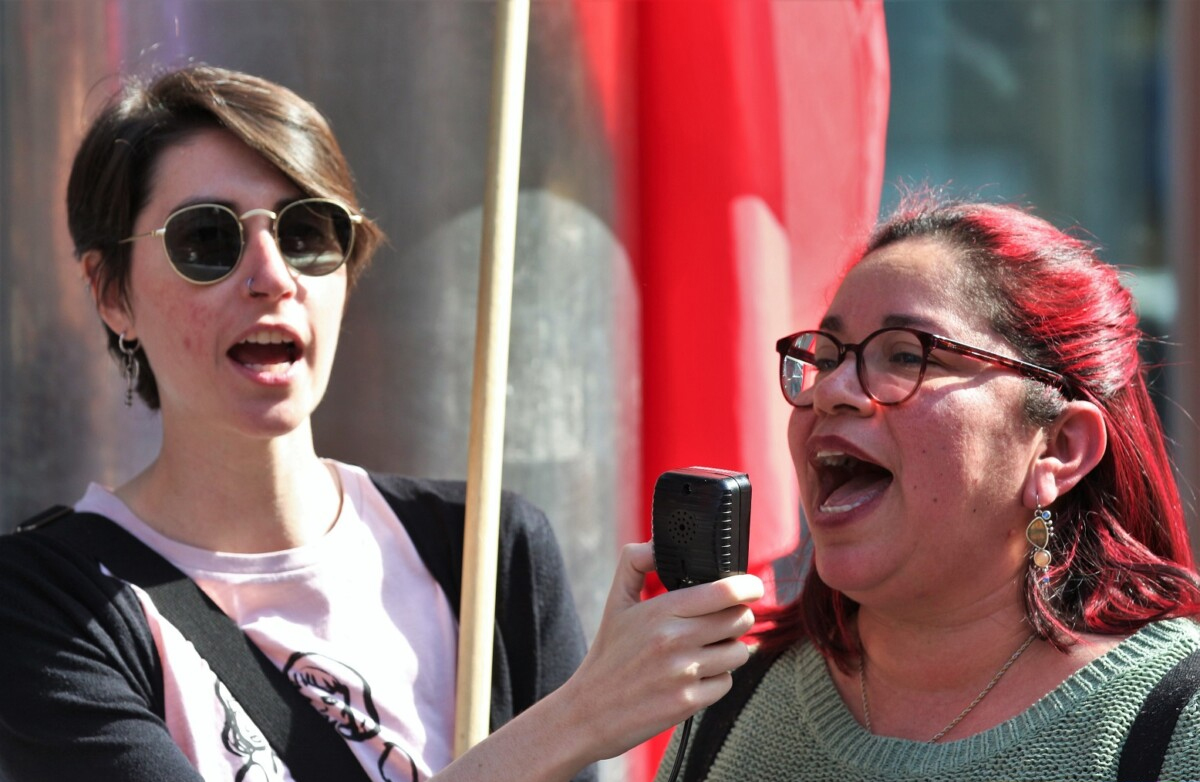
- The Council of Ministers recently adopted the decree establishing the evaluation of health examinations, training and occupational risks for household employees. But this decree also has important cracks: it requires the worker to maintain a “professional secrecy” and in many cases self-assessment will remain in the hands of the employer. “How are we going to bring to light the situations that occur in the privacy of the houses?” says Mariana Urquero from LAB.

The Royal Decree approved this Tuesday by the Council of Ministers as one of the great victories is that it is a regulation that expands the labor security of household employees, one of the most precarious and profoundly feminized sectors. “It was thanks to the domestic employees, they are the ones who have achieved this standard,” said the Minister of Labor of the Government of Spain, Yolanda Díaz.
In Díaz’s words, 45 years ago these women “not only had no right, but Spanish legislation prohibited them from having rights.” The politician also stressed that the Spanish State is the "first European country" to adopt such legislation in the Basque Country.
The decree states that household employees shall have the right to assess their occupational risks, which shall be subject to periodic medical examinations, which shall ensure the availability of adequate means and equipment for work and which shall receive preventive training, among other things.
On the other hand, the text also provides for a protocol for action in situations of violence and bullying in the family sphere. In the Spanish State there are 368,000 people discharged from Social Security in this sector, including those from Hego Euskal Herria. According to data released by the Ministry of Labour, 95 per cent are women, most of them between 40 and 50 years of age, and almost half are migrants.
The employer will be the one who says online if “the household employee sleeps with the person who has his/her bedroom or cares and if he/she wakes up every two hours”
The employer as an evaluator?
But despite the fact that for some it is a triumph and a step forward, for many of those working in the sector there are still significant gaps.
The employer will be responsible for evaluating the occupational safety of the job, for which the National Institute for Occupational Safety and Health will make available a free tool via the Internet.
In the words of Mariana Urquero, from the LAB syndicate, this is a “big gap”. As explained to El Salto, it will be the employer who says online if “the employee receives the right work equipment, if the household employee sleeps with the person who has his or her room or cares and if he or she wakes up every two hours.”
According to the trade unionist, the lack of an online entry/exit register also makes things difficult, especially given that this is the sector with longer working hours.

In addition, Urquito has denied what is stated in Article 7.3 of the Decree: it requires workers to be “a professional secret” when informing about the house in which they work. “They are limiting women’s freedom, not only to possible sexual harassment, but also to deal with any other workplace conflict,” said LAB member.
The union opened in 2022 the union section of household and care workers, and since then it has been fighting for a collective agreement. Last March, for example, demonstrations took place in Bilbao and Pamplona/Iruña, calling for more advantageous conditions for coexistence.